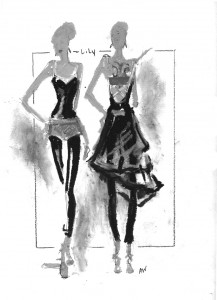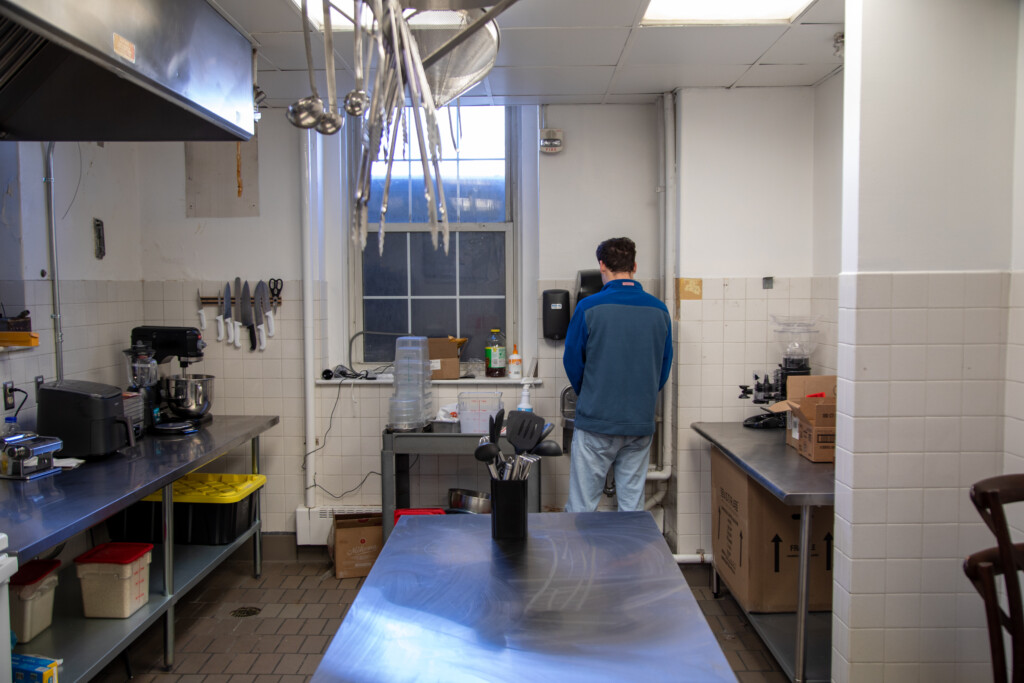Mila Kunis went down on Natalie Portman in “Black Swan.” Big deal. Been there, done that. Yes, it was hot. What’s of latest interest in the “Black Swan” pop culture world — which seems to be becoming more and more of a cult, I think — is a certain controversy over the film’s costume design.
As if the film didn’t generate enough buzz with the combination of director Darren Aronofsky and Portman, the greatest point of anticipation for the fashion world was that Kate and Laura Mulleavy, resident cool-kids and sister-designers of the label Rodarte, were to collaborate on the costume design.
I was one of the many who poured accolades onto the sisters and was consequently outraged at the travesty of their Oscar snub. I had not given much thought to Amy Westcott, the actual costume designer of the film, who carried the motherload of the film’s design and nursed it from the drawing board to reality.
Westcott, until recently, received very little publicity for her work. And, yet, who can forget the artful palette of the film — Portman’s plush doll-like white winter coat against Kunis’ darker tones with cut-outs to reveal back tattoos?
But, of course, what grabs the most attention are those ballet costumes: the feathered tutus, the structured tufts of taffeta and embroidery on the bodice, not to mention those gorgeous headpieces.
The public understanding seemed to be that the Mulleavy sisters of Rodarte put in the heavy lifting for the design of the ballet costumes, but would be robbed of Oscar recognition because they aren’t members of the Costume Designers Guild, while Westcott is.
In a recent interview with Clothes on Film, Westcott cleared the air about the controversy. Crestfallen as anyone would be at their own Oscar snub, Westcott was more concerned with her public image.
The publicity war had posited her as a manipulative Hollywood power prying away credit from the helpless indie designers. The story turns out to be quite the opposite: Westcott insists (and I believe her) that the Rodarte sisters collaborated on the designs with her and Aronofsky, only significantly contributing to seven costumes designs, as opposed to the 40 they supposedly take credit for.
Because of their relative fame and access to publicity, the Mulleavy sisters began to twist the favor of the fashion world towards them; the one making it seem as if they were left out in the dust, when in reality Westcott, without a publicist of any kind, was left to fend for herself.
The situation is a rather embarrassing one for the fashion world. The whole ordeal seems to me like two rival fashionistas at a high school spreading rumors. I’m slightly disappointed and disillusioned with the designers and with the industry.
It is a shameful thing indeed that the slightly more grounded Mulleavy sisters (acclaimed, yes, but no Carolina Herrera or Phoebe Philo) would use their fame to gain some false sense of sympathetic public favor.
Do they need attention and awards to feel that they are fulfilled as designers? They have a successful line with devoted celebrity followers as it is, so why feed the controversy? Fashion already has such close ties with fame and wealth — part of why it is so often criticized as materialistic and insubstantial — but this episode only adds to the negative reputation.
It is easy to gain recognition for the glitz and glamour of costumes like Portman’s final black swan look in the film. With so much drama and acting power behind the costume, it is no wonder the Mulleavy sisters roped in such praise.
However, subtler, mood-making clothing choices of the dance practice outfits, the earthy shades of the mother, the underground feel of the club scenes, all of which rendered the film viscerally real, were primarily Wescott’s doing. That, I believe, takes true and unmistakable talent.
Burritt is a member of
the class of 2013.
arts
A flock of controversy over the fashion of ‘Black Swan’
As proud Americans, we often look down upon authoritarian governments for enforcing censorship on music, but under the Trump administration, free speech and the right to information is slowly but surely being squeezed from our grasp. Read More
ADP
A flock of controversy over the fashion of ‘Black Swan’
After losing their personal chefs and having their commercial-grade kitchens closed for two months, Fraternity Quad residents’ kitchens were reopened near the end of October. Read More
Album Review
A flock of controversy over the fashion of ‘Black Swan’
“Afterglow” was meant to be a deluxe version of the original “EUSEXUA,” but instead took on a life of its own, running away into a drug-fuelled night filled with grimy DJs and hallucinations from one too many bumps. Read More


